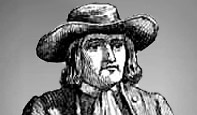The Lord is my light and my salvation;
Whom then shall I fear?
The Lord is the strength of my life;
Of whom then shall I be afraid?
So wrote the psalmist; and in doing so he made it clear that the idea of salvation was far older than the teaching of Jesus. But what is salvation? And what did those people so long ago mean by the word? The Church of England embraces a few profound truths. It says Salvation is mental, bodily, and spiritual health; and I believe this is profoundly true. It also says that salvation comes only through Jesus; I am not so sure about that. Why should not the Almighty let a man find salvation in another way if he wants to?
It is said that Jesus claimed that salvation came only through him. But what about all those who lived before his time? Even if you say Jesus meant that after he had lived, no-one approached the Father but by him, what about all those who have never heard about him; or only heard of him from the dishonest purveyors of indulgences, ancient and modern, whom anyone could see were dishonest? The local Quaker Meeting recently arranged a number of Lenten addresses by representatives of other faiths. The best was about Judaism; and the lecturer’s main point was that Judaism was monotheistic, and that when Jews prayed they thought or believed they had a one-to-one relationship with God. They were talking to Him, not to an intermediary; nor were they talking to someone who was hard of hearing, so that their heart-felt prayers somehow did not reach Him. He heard. How could I bring myself to say they were all mistaken; that actually they were all talking to an anthropomorphic image of God they had in their minds, because you can only approach the Father through Jesus? One only has to phrase the question in that way, to see how grossly discourteous and ludicrous it is. So one of the things emphasized by Jesus, if the Last Discourses in John’s Gospel are reliable, in my judgement is totally and absolutely wrong!
Albert Schweitzer held the view that Jesus made mistakes; and I’m afraid when you go into it, with however much loyalty, the more mistakes you find he made. He said he would draw all men to himself when he was lifted up from the earth. Yet it simply is not true; he only draws a small fraction of the people of this country to himself. It is a bold man who claims to know and to circumscribe the power and discretion of the Almighty; and Jesus claimed to know the will of the Almighty then and for all time. I just do not believe it. I can understand why Jesus, in his distress before his Passion, should have wished that these things were true; but they were not. We all indulge in wishful thinking; and Jesus was no exception.
Consider the appalling crimes of Christ’s Church. Consider for example, the 4th Crusade which captured, not Jerusalem, but Constantinople and then sacked it, the capital of the Eastern Christian Empire. H.A.L.Fisher in his History of Europe calls it the most shameful act in medieval history; and who can quarrel with that? And its instigator, Pope Innocent III, so far from repenting in sackcloth and ashes, then set on foot the Albigensian Crusade which was the first genocide of a fellow Christian people. Consider the Papacy in the reign of Pope Alexander VI, the father of Duke Cesare Borgia, a man of devilish wickedness, whom even the father dreaded in the end. The founder of a society or church cannot dictate the path along which it will develop. It takes on a life of its own; and may develop in ways which would have appalled its founder if he had been able to foresee the future. Jesus did pretty well in foreseeing the destruction of Jerusalem, if the authorities rejected his Gospel of peace. Not many people would have foreseen that if Jesus were rejected, the zealot’s counsel would prevail, with disastrous results. But even with Jesus there must have been a good deal of self-deception; or else his mind worked in a different way from ours. He avoided the need to foresee that his church might develop in unfortunate ways, by prophesying that he would be returning shortly.
